Search Results
Fine Jewelry University Articles matching: “jewelry box”
Showing only FJU Article results. Click here to show all results.
Fine Jewelry University (Show All FJU Articles)
-
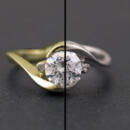
Star White Gold
… eventually. Regular, Plus, or Premium? The White Gold Task Force statement on the plating of white gold reveals how jewelry manufacturers view rhodium plating: “The lack of an industry-accepted definition of white as applied to white gold … we have a solution! Why are white gold consumers dissatisfied? Because they don’t know what the true color of the jewelry is when they buy it. I have seen a yellow gold ring heavily plated to look white. This was a true 14 karat yellow gold…
-

How to Tell If a Diamond Is Natural or Lab Grown
… realize is that most lab grown diamonds are clearly and responsibly disclosed to be synthetic. The big scare in the jewelry industry is non-disclosed lab grown diamonds that are sold as natural diamonds. But, it is important to know that … we have recently added to our own gem lab. This incredible machine is used by some of the world’s top gem labs and jewelry manufacturers daily, and it has already helped us catch undisclosed lab grown diamonds. It does not suffer from many …
-
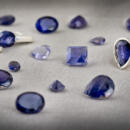
Gem in the Spotlight: Iolite
Iolite is maybe not the first gemstone people think of for their blue-violet jewelry, but it should be near the top of the list. Iolite’s color range of blue, blue-violet, and violet competes for …, if you ever need to find north, I would recommend a different approach. Just use the finger that your iolite jewelry is worn on to open the compass app on your smart phone. From there you can find both magnetic north and true north. I … than Opal, and softer than Emerald or Topaz. Because of this, some extra care should be taken with your iolite jewelry. Try to avoid wearing it in situations where it might be hit against hard objects to keep it free from cracks and small …
-
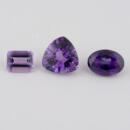
Gem in the Spotlight: Amethyst
Amethyst is known for its beautiful purple color, and it is the most important quartz variety used in jewelry. Purple has long been considered a royal color, so it is not surprising that amethyst has been in so much demand … purple, resulting in the creation of the gemstone known as amethyst. Amethyst has a long history of being used in jewelry and other decorative items. It was highly prized by ancient civilizations such as the Egyptians, who believed that … a fairly recent discovery as many low cost, high quality, deeply colored amethysts are now appearing in inexpensive jewelry. Because the cost of testing is higher than the cost of even the natural stones it is not often performed. Beware of…
-
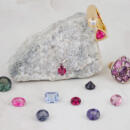
Gem in the Spotlight: Spinel
…. Gemology of Spinel With a Moh’s hardness of 8 and good toughness spinel is a great choice for all forms of jewelry. We recommend occasional wear for rings and bracelets, but earrings and pendants are suitable for daily wear. Spinel can …along. Stories like this have been occurring regularly for the last century, whether it is with an heirloom piece of jewelry or something found at the beach, what many people have believed to be a ruby for years turned out to be spinel. …
-

How Are Lab Grown Diamonds Made?
…feat. We have only recently been able to produce gem quality, lab grown diamonds that are large enough to be used in jewelry. But, how is it done? Early Efforts Throughout history, many people have claimed to have successfully synthesized …to create the first reproducible lab grown diamond. The diamond was tiny and nowhere near clear enough to be used in jewelry, but it was a start. As a side note here, we should mention that even today most of the man-made diamonds that are …
-
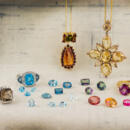
Gem in the Spotlight: Topaz
… varieties have their own names: Imperial Topaz: When both orange and red colors are present (although much of the jewelry industry might call golden topaz imperial). Golden Topaz: Yellow to orange without any red component (could be called … the birthstone for November and blue topaz is one of the birthstones for December. We have a great variety of topaz jewelry in stock at our everyday low prices. They make great gifts for anyone born in November or December, and for anyone
-
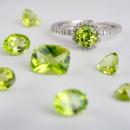
Gem in the Spotlight: Peridot
…. It is actually pronounced “pear-a-doe” instead of “pear-a-dot” although you will find many, even in the jewelry trade, who use the mispronunciation on a daily basis. The name “Peridot” is simply a French word derived from the Arabic for … for cleaning. Instead, use warm soapy water and a tooth brush for at-home cleanings. If well cared for, Peridot jewelry can last generations. We have an excellent selection of Peridot jewelry and loose Peridot gems that we can set for you. …
-
Synthetic Gems: The Whole Story
… are poorly made and can quickly be identified. Other synthetics are so well made it is impossible to id them in jewelry and can only be positively identified in gem labs with millions of dollars worth of equipment and world class personnel… are both very difficult to positively identify as synthetic. Both, I feel, are impossible to identify in a piece of jewelry. Synthetic ruby, sapphire, alexandrite and emerald are very complex because there are different ways to make them. …